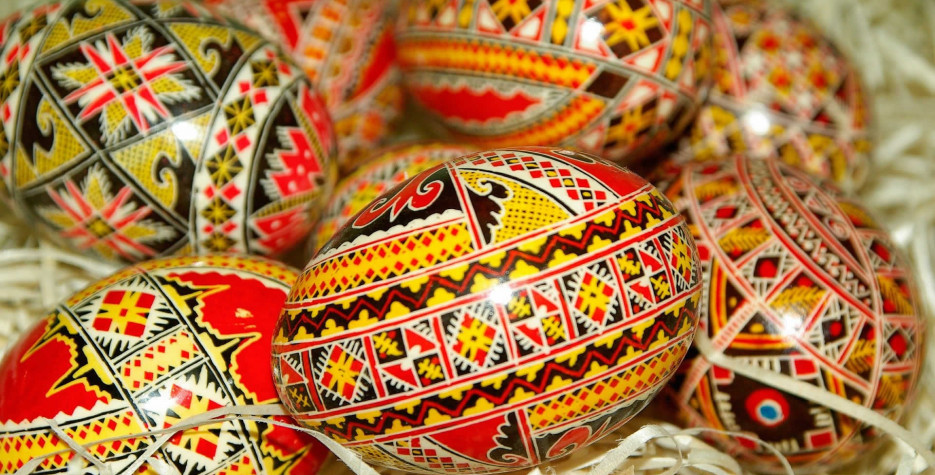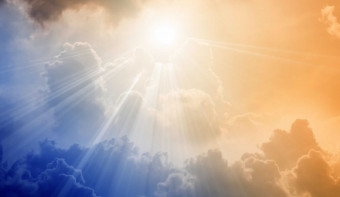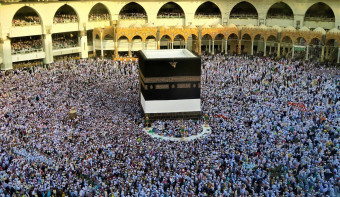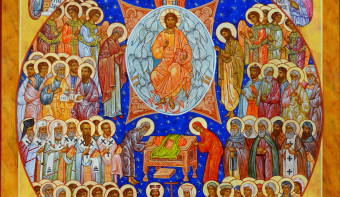About Orthodox Easter
When is Orthodox Easter?
Orthodox Easter, also called Greek Easter is the principal festival of the Orthodox Church. It is the most significant religious holiday for the world's roughly 300 million Orthodox Christians.
In the bible, it is the day when Mary Magdalene found that an empty tomb in the cave in which Jesus had been placed following his death by crucifixion on the Friday before.
It signifies the end of the 40 days of Lent, meaning Christians who gave up something during lent to signify Jesus' time in the wilderness, can indulge themselves again.
In Egypt, Coptic Easter Monday is celebrated on the same day as Orthodox Easter Monday. The day forms part of a wider spring festival called 'Sham El Nessim' and is a national holiday.
The date is different from Western Easter as the other Christian Churches base the date of calculating Easter on the Gregorian calendar, but the Eastern Orthodox Church still uses the earlier Julian calendar for calculating the dates of festivals, which also includes Easter.
Why is it called Easter?
The name Easter is derived from 'Ostara' or 'Eostre', a pagan goddess of fertility, whose feast was celebrated on the Vernal Equinox. The word East is also derived from her names, as is Oestrogen, the female hormone.
However, In most languages other than English and German, the holiday's name is derived from Pesach, the Hebrew name of Passover, a Jewish holiday to which the Christian Easter is intimately linked.
Easter depends on Passover not only for much of its symbolic meaning but also for its position in the calendar. The Orthodox Church uses the Julian calendar for the calculation of Easter, whereas the Western churches use the Gregorian calendar. This difference can often mean that Orthodox Easter falls later than Easter observed elsewhere. The earliest date it can fall is 4 April and the latest is 8 May.
Easter traditions
Though the Orthodox Churches vary from country to country, an Easter tradition binds them together. The "Holy Light," is a flame distributed throughout the Orthodox world each year from the Church of the Holy Sepulcher in Jerusalem to mark the resurrection of Christ.
Easter Eggs
Modern Easter celebrations revolve around eggs. They may be painted, rolled down hills or eaten if they are of the chocolate variety. The Christian tradition of the egg is an aid to represent rebirth and resurrection - new life being born from the egg. It's also been said that the egg recalls the shape of the stone that rolled away on Easter Sunday from the tomb that held Jesus' body.
This egg tradition is almost certainly a distillation of a much older pagan custom celebrating spring. The ancient Persians celebrated their new year at the time of the vernal equinox by painting eggs.
Its adoption into the Christian traditions would have been quite seamless, as eggs were banned during the period of Lent preceding Easter.
The custom of decorating eggs is perhaps most famous in Ukraine. Known as Pysanky eggs, they are painted when raw as the uncooked egg shell absorbs the coloured dye better than when cooked.
Similar Observances
Ascension ✝️
Read More
Eid Al Adha 🕋
Read More
Pentecost Sunday
Read More
Eastern Orthodox All Saints Day ☦️
Read More
Other Observances on April 12th 2026
Cosmonautics Day
Read More
National Big Wind Day
Read More
National Grilled Cheese Sandwich Day 🥪
Read More










